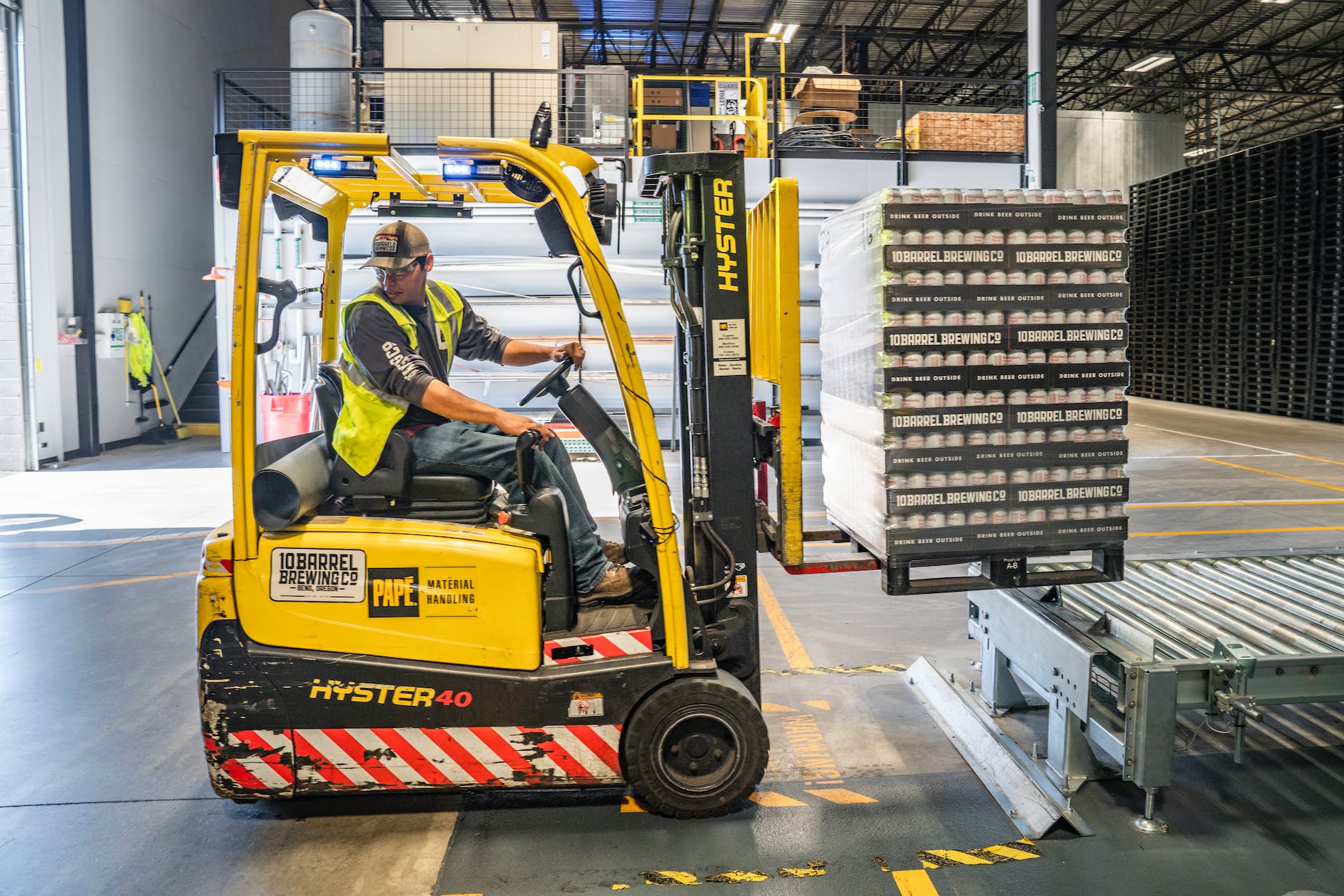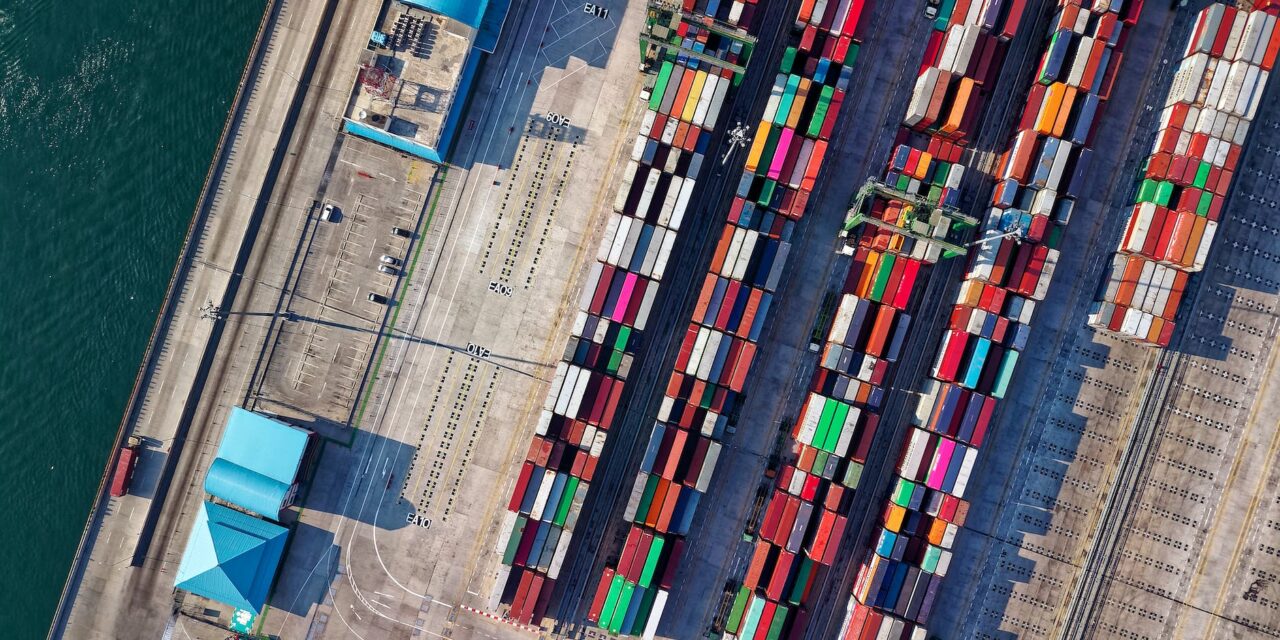Dubai’s strategic location, world-class infrastructure, and business-friendly environment have made it a hub for logistics and supply chain management. The city’s location between Europe and Asia, as well as its proximity to Africa, makes it an ideal location for businesses looking to expand their reach. Dubai’s logistics industry is a significant and fast-growing sector of the UAE economy, with a forecasted worth of $31.41 billion by 2026, representing a compound annual growth rate (CAGR) of 8.41%.
- Dubai as a Major Transportation Hub
- Investment Opportunities in Logistics
- Supply Chain Management in Dubai
- Growth and Competitiveness of Dubai’s Logistics Sector
- Technological Advancements in Logistics
- Impact of Major Events and Developments
- Dubai’s Strategic Position in the Middle East
- Future of Logistics in Dubai
- Frequently Asked Questions
- What are the advantages of investing in logistics in Dubai?
- How has Dubai’s logistics industry grown in recent years?
- What role does Dubai play in the global supply chain?
- What are the key logistics challenges faced by businesses in Dubai?
- What is the government’s support for logistics investment in Dubai?
- How can businesses optimize their supply chain management in Dubai?
Dubai’s extensive investment in infrastructure and transport has made it a world-leading hub for logistics, trade, and re-export. The government’s commitment to continuously improving its trade openness ratio has positioned it as a vital global hub. The logistics industry comprises more than 14% of Dubai’s GDP, and this sector is forecast to grow at a rate of 4% through to 2022. With the city’s advanced technology and modern facilities, businesses can expect efficient and cost-effective logistics solutions that help them stay competitive in the global market.
Investing in Dubai’s logistics industry offers a range of opportunities for businesses looking to expand their operations. The city’s logistics sector encompasses air, sea, and land transportation, as well as warehousing, distribution, and supply chain management. With its favorable business environment, world-class infrastructure, and strategic location, Dubai is an attractive destination for businesses looking to tap into the growing logistics market in the region.
Dubai as a Major Transportation Hub
Dubai is a global hub for transportation, connecting the East and the West. It is strategically located between Asia, Europe, and Africa, making it an ideal location for logistics and supply chain management. Dubai’s transportation infrastructure is world-class, with modern airports, seaports, and road networks. The city’s logistics and supply chain management sector is one of the fastest-growing in the world, offering investment opportunities for businesses.
Air Transport
Dubai International Airport is one of the busiest airports in the world, serving over 240 destinations across six continents. It is the home base of Emirates, which is one of the world’s largest airlines. The airport has three terminals and a cargo terminal, making it an important hub for air freight. In 2020, Dubai International Airport handled over 1.5 million tonnes of cargo, making it the world’s third-busiest airport for air freight.
Maritime Transport
Dubai’s strategic location on the Arabian Gulf has made it a hub for maritime transport. The city has two major ports: the Jebel Ali Port and the Port of Rashid. Jebel Ali Port is the largest marine terminal in the Middle East and one of the top ten busiest ports in the world. It is a major transshipment hub, handling over 19 million twenty-foot equivalent units (TEUs) of cargo in 2020. The Port of Rashid is located in the heart of Dubai and is an important gateway for cargo.
Land Transport
Dubai’s road network is well-developed, connecting the city to the rest of the UAE and the Gulf Cooperation Council (GCC) countries. The city has an extensive highway system, including the Sheikh Zayed Road, which is a major artery connecting Dubai to Abu Dhabi. Dubai’s land transport system also includes a modern metro system, which is one of the longest driverless metro systems in the world. The metro system connects the city’s major commercial and residential areas, making it an important mode of transportation for commuters.
Overall, Dubai’s transportation infrastructure is world-class, making it an ideal location for logistics and supply chain management. The city’s air, sea, and land transport systems are well-developed, connecting the city to the rest of the world. Dubai’s logistics and supply chain management sector is growing rapidly, offering investment opportunities for businesses looking to expand their operations in the region.
Investment Opportunities in Logistics
Dubai’s strategic location as a major transportation hub offers investors a wide range of opportunities in the logistics and supply chain management sector. With its world-class infrastructure, advanced logistics facilities, and business-friendly environment, Dubai has become a preferred destination for logistics companies and investors from around the world.
Free Zones
Dubai’s free zones offer a range of incentives and benefits to investors who are looking to set up logistics businesses in the region. The Dubai Logistics City (DLC) and Jebel Ali Free Zone (JAFZA) are two of the most popular free zones for logistics companies.
The DLC is a state-of-the-art logistics hub that offers investors a range of services, including warehousing, distribution, and transportation. It is located next to the Al Maktoum International Airport, which is the world’s largest cargo airport and has the capacity to handle 12 million tonnes of cargo annually. The DLC also offers investors access to a world-class transportation network, including road, air, and sea.
JAFZA, on the other hand, is a multi-modal logistics hub that offers investors a range of services, including warehousing, distribution, and transportation. It is located next to the Jebel Ali Port, which is the largest marine terminal in the Middle East and has the capacity to handle 22.1 million containers annually. JAFZA also offers investors access to a world-class transportation network, including road, air, and sea.
Emerging Markets
Dubai’s strategic location also offers investors access to emerging markets in the Middle East, Africa, and Asia. The region’s growing population and increasing demand for goods and services create opportunities for logistics companies and investors who are looking to expand their businesses.
Dubai’s logistics sector has been growing rapidly in recent years, driven by the government’s investment in infrastructure and the increasing demand for logistics services. The sector is expected to continue to grow in the coming years, creating opportunities for investors who are looking to invest in the region.
In conclusion, Dubai’s logistics sector offers investors a range of opportunities in the logistics and supply chain management sector. With its world-class infrastructure, advanced logistics facilities, and business-friendly environment, Dubai has become a preferred destination for logistics companies and investors from around the world.
Supply Chain Management in Dubai

Dubai’s strategic location and world-class infrastructure have made it a major transportation hub and a logistics and supply chain management center. The city’s logistics industry has grown rapidly in recent years, and it now offers a wide range of investment opportunities in supply chain management.
Warehousing
Dubai’s warehousing industry is well-developed and offers a range of options to suit different business needs. The city has a number of modern, state-of-the-art warehouses that are equipped with the latest technology and offer a range of services, including storage, handling, and distribution.
The Dubai Logistics City (DLC) is a major logistics hub that offers a range of warehousing options. The DLC has over 12 million square feet of warehousing space, with facilities that cater to different types of cargo, including temperature-controlled storage, hazardous materials storage, and general cargo storage.
Freight Forwarding Sector
Dubai’s freight forwarding sector is one of the most developed in the region, and it offers a range of services to businesses that need to move goods to and from Dubai. The city has a number of freight forwarding companies that offer air, sea, and land freight services.
Dubai’s air freight industry is particularly well-developed, and the city is home to one of the world’s busiest airports, Dubai International Airport. The airport handles over 2.5 million tons of cargo annually and has a range of facilities that cater to different types of cargo, including perishable goods, dangerous goods, and oversized cargo.
Distribution
Dubai’s distribution industry is well-developed, and it offers a range of services to businesses that need to distribute their products in the region. The city has a number of distribution companies that offer a range of services, including warehousing, transportation, and delivery.
Dubai’s road infrastructure is world-class, and it offers easy access to other countries in the region, including Saudi Arabia, Oman, and Qatar. The city also has a number of ports that offer easy access to the rest of the world, including the Jebel Ali Port, which is one of the world’s busiest ports and handles over 15 million TEUs annually.
Overall, Dubai’s logistics and supply chain management industry is well-developed and offers a range of investment opportunities to businesses that are looking to expand in the region. The city’s strategic location, world-class infrastructure, and well-developed logistics industry make it an ideal location for businesses that need to move goods to and from the region.
Growth and Competitiveness of Dubai’s Logistics Sector
Dubai’s logistics sector has been a key driver of economic growth and diversification in recent years. As a major transportation hub, the emirate offers investment opportunities in logistics and supply chain management. This section will examine the economic activity and trade volumes of Dubai’s logistics sector.
Economic Activity
Dubai’s logistics industry has been a major contributor to the emirate’s economy. In 2017, transport and storage accounted for 11.2% of Dubai’s economy at a value of Dh46.1bn ($12.5bn), second only to wholesale and retail trade, which accounted for 25.8% of the economy [1]. Although the emirate’s economy has had difficulties in recent years due to a series of largely external factors, the logistics sector has remained resilient. According to a report by Oxford Business Group, the logistics sector is expected to continue growing in the coming years, driven by the expansion of Dubai’s ports and airports, as well as the development of logistics parks and free zones [1].
Trade Volumes
Dubai’s strategic location at the crossroads of major trade routes has made it a hub for global trade. The emirate’s logistics sector has benefited from this, with trade volumes increasing in recent years. According to a report by the Ministry of Economy UAE, the global logistics market was valued at USD 7,641.20bn in 2018, and global rail freight traffic amounted to around 9 trillion-ton kilometres and is expected to reach roughly 12 trillion-ton kilometres by 2025 [2]. The report also notes that the logistics sector is one of the backbones of international trade [2].
Dubai’s logistics sector has also shown impressive growth rates. The Freight and Logistics Market in UAE was valued at USD 19.65 billion in 2020 and is expected to reach USD 31.41 billion in 2026 growing at a CAGR of 8.41% through the forecast period [3]. According to a survey by logistics company Agility, the UAE ranks among the top three logistics centres in emerging markets, after China and India [4].
In conclusion, Dubai’s logistics sector has been a major contributor to the emirate’s economic growth and diversification. The sector has shown impressive growth rates, driven by the expansion of Dubai’s ports and airports, as well as the development of logistics parks and free zones. With its strategic location and competitive advantages, Dubai is well-positioned to continue to grow as a global logistics hub.
Sources:
Technological Advancements in Logistics
Logistics has always been a complex and challenging industry, but technological advancements have made it easier to manage supply chains and transportation networks. Dubai, being a major transportation hub, offers investment opportunities in logistics and supply chain management.
Digital Transformation
Digital transformation is the integration of digital technology into all areas of an organization, resulting in fundamental changes to how businesses operate and deliver value to customers. In logistics, digital transformation has led to the development of new tools and technologies that streamline operations, increase efficiency, and reduce costs.
One of the most significant digital transformations in logistics has been the adoption of cloud-based platforms. Cloud-based logistics platforms provide real-time visibility into transportation networks, enabling logistics managers to optimize routes, reduce transit times, and improve customer satisfaction. Additionally, cloud-based platforms can integrate with other systems, such as warehouse management systems, to provide end-to-end visibility into the supply chain.
Artificial Intelligence
Artificial intelligence (AI) is another technological advancement that is transforming logistics. AI-powered systems can analyze vast amounts of data in real-time, providing logistics managers with insights that can help them make better decisions. For example, AI-powered predictive analytics can help logistics managers anticipate demand and adjust their transportation networks accordingly.
AI-powered systems can also help logistics managers optimize their transportation networks by identifying the most efficient routes and modes of transportation. Additionally, AI-powered systems can help logistics managers automate repetitive tasks, such as data entry, freeing up time for more strategic tasks.
In conclusion, technological advancements such as digital transformation and artificial intelligence are transforming the logistics industry, making it easier to manage supply chains and transportation networks. As a major transportation hub, Dubai offers investment opportunities in logistics and supply chain management, making it an attractive destination for logistics companies looking to leverage these advancements.
Impact of Major Events and Developments
Dubai has been a major transportation hub for decades, with a strategic location that connects Asia, Europe, and Africa. The city has invested heavily in logistics and supply chain management, making it an attractive destination for investors looking to tap into the region’s growing trade flows. However, recent events and developments have had a significant impact on the logistics industry in Dubai.
Expo 2020
Dubai Expo 2020, which was postponed due to the Covid-19 pandemic, has finally taken place from October 1, 2021, to March 31, 2022. The six-month-long event attracted millions of visitors from around the world and showcased the latest technologies and innovations in various industries, including logistics. The Expo has provided a significant boost to the logistics industry in Dubai, with a surge in demand for transportation, warehousing, and other logistics services.
According to KPMG, the Expo has led to a significant increase in demand for logistics services in Dubai, with a particular focus on the e-commerce sector. The event has also encouraged the adoption of new technologies and innovations in logistics, such as autonomous vehicles, drones, and blockchain.
Covid-19 Pandemic
The Covid-19 pandemic has had a significant impact on the logistics industry worldwide, and Dubai is no exception. The pandemic has disrupted global supply chains, causing delays and shortages of essential goods. However, Dubai’s proactive response to the pandemic has helped mitigate its impact on the logistics industry in the city.
Dubai’s government has implemented various measures to support the logistics industry during the pandemic, such as providing financial assistance to affected businesses, ensuring the smooth flow of goods through ports and airports, and implementing strict health and safety protocols. The city’s proactive response has helped maintain its position as a leading logistics hub in the region.
According to a report by KPMG, the pandemic has accelerated the adoption of digital technologies in logistics, such as e-commerce, automation, and contactless delivery. These technologies have helped mitigate the impact of the pandemic on the logistics industry and are expected to continue driving growth in the sector.
In conclusion, Dubai’s logistics industry has been impacted by major events and developments such as Expo 2020 and the Covid-19 pandemic. However, the city’s proactive response to these challenges has helped maintain its position as a leading logistics hub in the region. The adoption of new technologies and innovations in logistics is expected to drive growth in the sector in the coming years.
Dubai’s Strategic Position in the Middle East
Dubai’s strategic position in the Middle East has made it a vital global hub for logistics and supply chain management. The emirate is located at the crossroads of East and West, and it has become a gateway to the Middle East, Asia, Europe, and Africa.
Gateway to the Middle East
Dubai’s position as a gateway to the Middle East has made it an attractive location for businesses looking to expand their operations in the region. The emirate has a well-developed infrastructure that includes world-class airports, seaports, and road networks, making it easy for goods to be transported in and out of the country. Dubai’s logistics industry has been known to continually invest in improving its trade openness ratio, which has positioned it as a vital global hub.
Geographical Location
Dubai’s geographical location has played a significant role in its growth as a logistics hub. The emirate is strategically located at the South-Eastern tip of the Persian Gulf, occupying a total area of about 83,600 sq. km (32,400 sq. miles), roughly the size of Portugal. It has 700 km of coastline, 600 km along the Arabian Gulf and 100 km bordering the Gulf of Oman. This location has made it an ideal location for businesses looking to access the Middle East, Asia, Europe, and Africa.
Dubai’s strategic position in the Middle East has made it an attractive location for businesses looking to expand their operations in the region. Its world-class infrastructure, including airports, seaports, and road networks, has made it easy for goods to be transported in and out of the country. Its geographical location has made it an ideal location for businesses looking to access the Middle East, Asia, Europe, and Africa.
Future of Logistics in Dubai
Dubai is a rapidly growing logistics hub that offers a range of investment opportunities in logistics and supply chain management. With its strategic location, world-class infrastructure, and advanced technology, Dubai is well-positioned to become a global leader in logistics.
One of the key trends shaping the future of logistics in Dubai is sustainability. As the world becomes increasingly aware of the impact of climate change, companies are looking for ways to reduce their carbon footprint. Dubai is committed to sustainability and has set ambitious targets to reduce its greenhouse gas emissions. The Dubai Supreme Council of Energy has set a target of reducing energy consumption by 30% by 2030, while the Dubai Municipality has launched several initiatives to promote sustainable waste management.
Another trend that is shaping the future of logistics in Dubai is the Smart Dubai 2021 initiative. This initiative aims to transform Dubai into a smart city that leverages the latest technology to improve the lives of its residents and visitors. The Smart Dubai initiative includes several projects that will have a significant impact on logistics, such as the Dubai Autonomous Transportation Strategy, which aims to make 25% of all transportation in Dubai autonomous by 2030.
Dubai Expo 2020 is another event that is expected to have a significant impact on the future of logistics in Dubai. The event is expected to attract millions of visitors from around the world, which will create a huge demand for logistics services. To meet this demand, Dubai is investing heavily in its logistics infrastructure, including the expansion of Dubai World Central and the construction of new logistics parks.
Overall, the future of logistics in Dubai looks bright. With its commitment to sustainability, advanced technology, and world-class infrastructure, Dubai is well-positioned to become a global leader in logistics and supply chain management.
Frequently Asked Questions
What are the advantages of investing in logistics in Dubai?
Dubai’s strategic location makes it a gateway to the Middle East, Africa, and Asia, making it an ideal location for businesses to establish their logistics operations. Dubai has world-class infrastructure, including ports, airports, and highways, which makes it a hub for international trade. Additionally, the city has a business-friendly environment, with tax incentives and streamlined procedures for setting up businesses.
How has Dubai’s logistics industry grown in recent years?
Dubai’s logistics industry has experienced significant growth in recent years, driven by the government’s investment in infrastructure and the city’s strategic location. The logistics industry contributes significantly to the city’s economy, with the sector accounting for around 14% of Dubai’s GDP. The government has also implemented several initiatives to attract foreign investment in the logistics industry, which has further fueled its growth.
What role does Dubai play in the global supply chain?
Dubai plays a critical role in the global supply chain, serving as a hub for trade between Asia, Europe, and Africa. The city’s strategic location, world-class infrastructure, and business-friendly environment make it an ideal location for businesses to establish their logistics operations. Additionally, Dubai is the largest re-exporter and importer in the region, making it an essential link in the global supply chain.
What are the key logistics challenges faced by businesses in Dubai?
Despite the advantages of investing in logistics in Dubai, businesses face several challenges. One of the significant challenges is the high cost of logistics services, which can be attributed to the city’s high cost of living. Additionally, the city’s traffic congestion can cause delays in the delivery of goods, and businesses must navigate complex regulations and customs procedures.
What is the government’s support for logistics investment in Dubai?
The government of Dubai has implemented several initiatives to support logistics investment in the city. For example, the government has established free zones, such as Dubai Logistics City and Dubai South, which provide tax incentives and streamlined procedures for setting up businesses. Additionally, the government has invested in infrastructure, including ports, airports, and highways, to support the logistics industry’s growth.
How can businesses optimize their supply chain management in Dubai?
To optimize their supply chain management in Dubai, businesses should take advantage of the city’s world-class infrastructure and logistics services. For example, businesses can use Dubai’s ports and airports to streamline their import and export operations. Additionally, businesses should work with logistics providers that have a strong presence in the city and are familiar with local regulations and customs procedures. Finally, businesses should leverage technology, such as supply chain management software, to improve their logistics operations’ efficiency.

























